In Christian eschatology, the Antichrist or anti-Christ means someone recognized as fulfilling the Biblical prophecies about one who will oppose Christ and substitute himself in Christ's place.
'Antichrist' is translated from the combination of two ancient Greek words αντί + Χριστός (anti + Christos). In Greek, Χριστός means “anointed one” and the word Christ derives from it. It is a Greek translation of the Hebrew concept of Messiah. Christians apply it to Jesus of Nazareth.[1] "Αντί" means not only anti in the sense of “against” and “opposite of”, but also “in place of".[2] The term itself appears 5 times in 1 John and 2 John of the New Testament — once in plural form and four times in the singular.
'Antichrist' is translated from the combination of two ancient Greek words αντί + Χριστός (anti + Christos). In Greek, Χριστός means “anointed one” and the word Christ derives from it. It is a Greek translation of the Hebrew concept of Messiah. Christians apply it to Jesus of Nazareth.[1] "Αντί" means not only anti in the sense of “against” and “opposite of”, but also “in place of".[2] The term itself appears 5 times in 1 John and 2 John of the New Testament — once in plural form and four times in the singular.
Biblical references
The antichrist and antichrists appear in the First and Second Epistle of John.[4][5][6][7]
1 John chapter 2 refers to many antichrists present at the time while warning of one Antichrist that is coming.[8] The "many antichrists" belong to the same spirit as that of the one Antichrist.[6][8] John wrote that such antichrists deny "that Jesus is the Christ", "the Father and the Son", and would "not confess Jesus came in the flesh." Likewise, the one Antichrist denies the Father and the Son.[5]
1 John chapter 2 refers to many antichrists present at the time while warning of one Antichrist that is coming.[8] The "many antichrists" belong to the same spirit as that of the one Antichrist.[6][8] John wrote that such antichrists deny "that Jesus is the Christ", "the Father and the Son", and would "not confess Jesus came in the flesh." Likewise, the one Antichrist denies the Father and the Son.[5]
This one Antichrist is spoken of in more detail by Paul in 2 Thessalonians chapter 2.[9] Paul uses the term man of sin to describe what John identifies as the Antichrist.[10] Paul writes that this Man of Sin (sometimes translated son of perdition) will possess a number of characteristics. These include "sitting in the temple", opposing himself against anything that is worshiped, claiming divine authority,[11] working all kinds of counterfeit miracles and signs,[12] and doing all kinds of evil.[13] Paul notes that "the mystery of lawlessness"[14] (though not the Man of Sin himself) was working in secret already during his day and will continue to function until being destroyed on the Last Day.[15] His identity is to be revealed after that which is restraining him is removed.[9][15]
The term is also often applied to prophecies regarding a "Little horn" power in Daniel 7.[16] Daniel 9:27 mentions an "abomination that causes desolations" setting itself up in a "wing" or a "pinnacle" of the temple.[17] Some scholars interpret this as referring to the Antichrist.[18] Some commentators also view the verses prior to this as referring to the Antichrist.[19] Jesus refers to the references about abomination from Daniel 9:27, 11:31,[20] and 12:11[21] in Matthew 24:15[22] and Mark 13:14[23] when he warns about the destruction of Jerusalem. Daniel 11:36-37[24] speaks of a self exalting king, considered by some to be the Antichrist.[25]
Antiochus Epiphanes attempted to replace worship of Yahweh with veneration of himself, and was referred to in the Daniel 8:32-25 prophecy.[26] His command to worship false gods and desecration of the temple is seen by many[who?] as prefiguring the Antichrist.
Some[who?] identify him as being in league with (or the same as) several figures in the Book of Revelation including the Dragon, the Beast, the False Prophet, and the Whore of Babylon.
Antiochus Epiphanes attempted to replace worship of Yahweh with veneration of himself, and was referred to in the Daniel 8:32-25 prophecy.[26] His command to worship false gods and desecration of the temple is seen by many[who?] as prefiguring the Antichrist.
Some[who?] identify him as being in league with (or the same as) several figures in the Book of Revelation including the Dragon, the Beast, the False Prophet, and the Whore of Babylon.


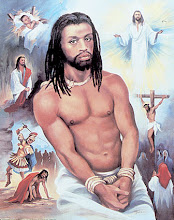


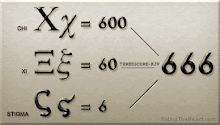

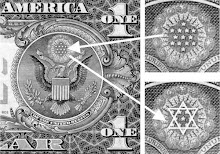
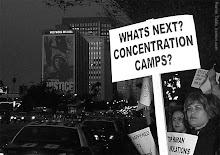
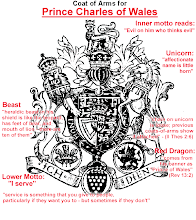
No comments:
Post a Comment